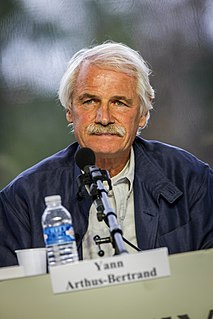A Quote by Michael Specter
The best way to deal with climate change has been obvious for years: cut greenhouse-gas emissions severely. We haven't done that. In 2010, for example, carbon emissions rose by six per cent - the largest such increase on record.
Related Quotes
The fact is that seven per cent of the global population emits 50 per cent of greenhouse gas emissions, and the proportions are the same for the use of energy and raw materials, meat, wood, etc. Simply put, an infinitesimal minority consumes the most and imposes damage on the overwhelming majority, while asking it to change.
I am troubled by the lack of common sense regarding carbon dioxide emissions. Our greatest greenhouse gas is water. Atmospheric spectroscopy reveals why water has a 95 percent and CO2 a 3.6 percent contribution to the 'greenhouse effect.' Carbon dioxide emissions worldwide each year total 3.2 billion tons. That equals about 0.0168 percent of the atmosphere's CO2 concentration of about 19 trillion tons. This results in a 0.00064 percent increase in the absorption of the sun's radiation. This is an insignificantly small number.
CO2 is a minor player in the total system, and human CO2 emissions are insignificant compared to total natural greenhouse gas emissions. Therefore, lowering human CO2 emissions will have no measurable effect on climate, and continued CO2 emissions will have little or no effect on future temperature....While controlling CO2 emissions from burning fossil fuels may have some beneficial effects on air quality, it will have no measurable effect on climate, but great detrimental effects on the economy and our standard of living.
We need to remind ourselves that our ultimate goal is not to reduce greenhouse gases or global warming per se but to improve the quality of life and the environment. We all want to leave the planet in decent shape for our kids. Radically reducing greenhouse gas emissions is not necessarily the best way to achieve that.
In the current setting the situation of the poor is neglected despite the grotesque wealth of the capitalist elites, and the dangers to the well-being of humanity associated with climate change are ignored despite a strong scientific consensus warning of the adverse, and possibly irreversible, consequences of further delays in reducing the level of greenhouse gas emissions, especially carbon.

































